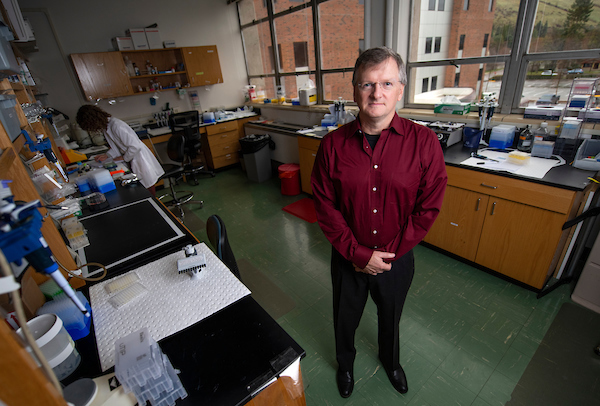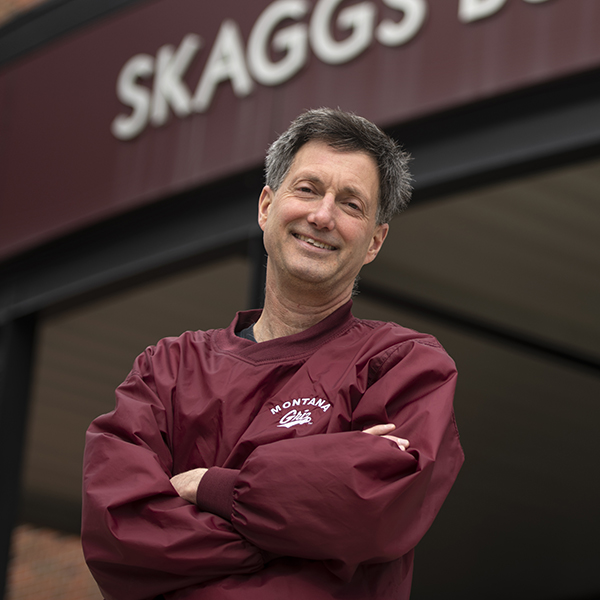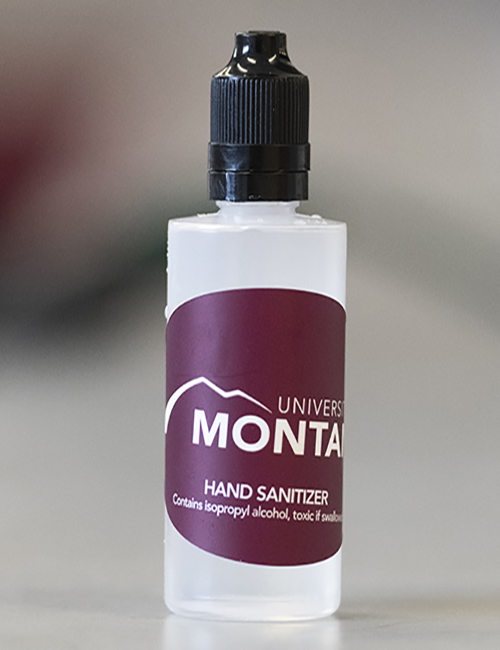- Editorial Offices
- 203 Brantly Hall
- Missoula, MT 59812
- (406) 243-2488
- themontanan@umontana.edu
UM Research Addresses COVID-19
UM secures more than $12 million in federal funding for research into public health.$2.5 Million in NIH Funding to Advance a COVID-19 Vaccine
Researchers in UM’s Center for Translational Medicine were awarded $2.5 million in funding from the National Institutes of Health to identify and advance a COVID-19 vaccine candidate. The principal investigator on the two-year award is Dr. Jay Evans, the center director and a research professor in UM’s Division of Biological Sciences. UM has a world-class vaccine discovery and development team actively working on new or improved vaccines for influenza virus, tuberculosis, whooping cough, Pseudomonas aeruginosa, Lyme disease, E. coli and opioid addiction.
“When the call came from NIH in February to shift focus and develop a vaccine against SARS-CoV-2, we quickly adjusted lower priority vaccine projects to focus our efforts on this urgent need,” Evans says. “Our dedicated team of experienced researchers stepped up in the face of school closures, stay-at-home orders and social distancing to rapidly advance this vaccine and continue working on other essential research projects of critical importance to our community and the nation.”
“This award demonstrates the amazing team the University has assembled to advance vaccine development for both COVID-19 and future viruses that will lead to the next pandemic,” said Scott Whittenburg, UM vice president for research and creative scholarship. “UM is now a recognized leader in the response to pandemics and other health emergencies through the Center for Translational Medicine, Center for Public Health Research, Center for Biomolecular Structure and Dynamics and numerous faculty across campus.”

$10.75 million grant to fund a Center for Population Health Research Center
The National Institutes of Health awarded the University a five-year $10.75 million grant to establish the Center for Population Health Research (CPHR, pronounced “see-far”). The center will support epidemiological and mathematical modeling approaches to better understand risk and resilience factors for children’s health outcomes. It also will create disease prevention strategies developed for, adapted to and tested in rural communities.

Campus-made Hand Sanitizer
During normal times, UM Regents Professor Richard Bridges spends his days researching potentially life-saving projects in neuroscience, specifically how and why brain cells die in diseases like Alzheimer’s and ALS. With the arrival of COVID-19, the Cornell-trained biochemist immediately got to work elbow deep in isopropyl alcohol and vegetable glycerin, mixing gallons of hand sanitizer for fire, police and medical personnel around Missoula. Bridges taught himself and students how to produce sanitizer according to CDC recommendations.





